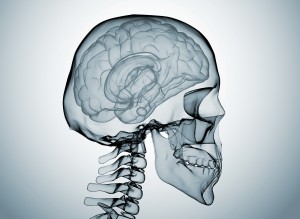This week I blogged about screening tests for potentially life threatening ovarian and prostate cancers. As I thought about the impact of screening for disease, I reflected on the potential for poor outcomes and how these outcomes may impact families and loved ones. Unfortunately, death and dying is part of medicine. Patients and families must cope with extraordinary circumstances as they face life aggressive cancers, traumatic injuries and deadly disease.
This week I blogged about screening tests for potentially life threatening ovarian and prostate cancers. As I thought about the impact of screening for disease, I reflected on the potential for poor outcomes and how these outcomes may impact families and loved ones. Unfortunately, death and dying is part of medicine. Patients and families must cope with extraordinary circumstances as they face life aggressive cancers, traumatic injuries and deadly disease. As physicians, we must try to help patients and families navigate through difficult times.Today, while reading the New York Times, I came across a very moving article addressing closure after the death of a family member. In the piece, author and oncologist Dr Mikkael Sekeres describes a recently widowed spouse and her young children meeting with him after their husband/father’s death in order to find closure after his long battle with leukemia. Dr Sekeres’s story illustrates an important part of our job as physicians–the care of the family and loved ones. Disease and death can strike suddenly and end quickly but can also persist over agonizing days, months and years. In either case, many families need to process these events and find closure to their journey with disease. I recently blogged about the recent publications demonstrating increased rates of depression and suicide in spouses of heart attack and sudden cardiac death patients. Families with young children have particularly difficult times finding closure after the untimely death of a parent and spouse.
Harvard Professor J. William Worden created his “Tasks of Mourning” and these principles can provide a framework in which we can better understand and help the families of our patients cope with and process grief.
1. To Accept the Reality of the Loss–The common initial reaction after the news of loss is delivered is protest and denial. This reaction can last for months, particularly if the death was sudden. As providers, we must help the families move beyond protest and denial so that they can begin to heal. Allowing families and children to be with the patient after death (before the patient is moved from the hospital room or bed) is a critical part to fostering acceptance of death.
2. To Work Through the Pain and Grief: Once the loss is accepted by the psyche, feelings of profound sadness and loss often occur. Sometimes these feelings can constitute clinical depression (situational). As I have stated in my previous blog on depression after sudden cardiac death it is critical that healthcare providers take time to meet with and assess the emotional health of loved ones after the death of a patient. Moving through grief may require counseling and discussions such as the one that Dr Sekere describes in the New York Times today are critical to this process. For many experiencing a significant loss, the first year following the loss is all about “learning to survive”.
3. To Adjust to An Environment Where the Deceased is Missing:Families have a difficult time adjusting to a world without a spouse or parent. Reminders are everywhere, and this can be good for the adjustment. Family members may have to take on new tasks (such as paying the bills or mowing the lawn) that were previously performed by the deceased family member. These practical transitions can be difficult. Talking about this adjustment with others–friends, support groups and physicians can be an important part of the process.
4. To Emotionally Relocate and Move On With Life: The process of emotionally relocating a loved one is a lifelong process. For families experiencing the loss of a spouse or parent (in the case of young children) time does not necessarily “heal all wounds”. This process may continue throughout life and things such as ritual and meaningful rememberances will certainly facilitate the process. For example, if dad always enjoyed putting particular decorations on the Christmas tree, it may be helpful to have a special night before Christmas where the children celebrate their dad’s life by hanging up those decorations and commemorating his life.
Closure is a difficult concept. The “Tasks of Mourning” involve learning to live with and adjust to the loss of a beloved family member. Although families may never completely adjust or emotionally relocate, it is important that they are able to learn to once again find hope and enjoyment in everyday life. As physicians, it is important to remember that we can help families dealing with loss by supporting, educating and coaching spouses and children through this process and prepare them to rekindle their desire to live life to its fullest.







